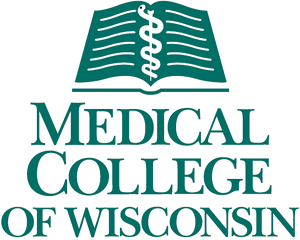Postdoctoral Researcher
 Medical College of Wisconsin Medical College of Wisconsin | |
 parental leave, paid holidays, sick time, tuition reimbursement, 403(b)
parental leave, paid holidays, sick time, tuition reimbursement, 403(b)
| |
 United States, Wisconsin, Milwaukee | |
 Jun 17, 2025 Jun 17, 2025 | |
|
According to the National Institute of Health (NIH) and the National Science Foundation (NSF), a postdoc is an individual who has received a doctoral degree (or equivalent) and is engaged in a temporary and defined period of mentored advanced research training to enhance the professional skills and research independence needed to pursue his or her chosen career path. In addition, according to the National Postdoc Association (NPA), Postdoctoral appointees can pursue basic, clinical or translational projects so long as their primary effort is devoted toward their own scholarship. Postdocs are essential to the scholarly mission of the mentor and host institution, and thus are expected to have the freedom to publish the results of their scholarship. This postdoctoral fellow will contribute to a research team focused on health equity at the intersection of public health and geography. We focus on inequities in non-communicable diseases including cancer, cardiovascular disease, and mental health and well-being, both at home and abroad. Current US-based work focuses on the impact of residential racial segregation, redlining, tree canopy and other neighborhood determinants on health inequities among racially and ethnically diverse communities, and the potential to leverage beneficial neighborhood features and systems changes to reduce health inequity. A primary project is the Breast Cancer, Race and Place project (https://www.mcw.edu/departments/epidemiology/research/breast-cancer-race-and-place). In East Africa, we work with community and academic partners, including cancer registries and non-governmental organizations, on cervical and breast cancer prevention and control. Our team is comprised of faculty, staff, trainees, and a diverse array of community and academic partners. Our team also supports the Geospatial, Epidemiology and Outcomes (GEO) shared resource of the MCW Cancer Center (http://www.mcw.edu/geo). Characteristics of a postdoctoral appointment: It is expected that postdocs at MCW, with the assistance of their supervisor, will:
Responsibilities:
Knowledge - Skills - Abilities Required knowledge: public health; geography; social science; environmental science; statistics; mathematics; data science; data visualization; documentation; records management; complex problem solving; critical thinking; resource management; communication; community engagement. Specific knowledge in the following areas is highly valued: health equity, global health, environmental justice, housing, structural racism, neighborhood effects on health, greenspace and green infrastructure, climate change mitigation and adaptation, women's health, children's health, cancer and other non-communicable diseases, implementation science; measurement of residential racial segregation, redlining, housing discrimination, health inequities and related constructs. Skills and abilities: Interest and experience in working with a wide range of community partners and collaborators and a strong commitment to diversity, equity and inclusion. Abilities in data utilization, complex problem solving, critical thinking, troubleshooting, resource management, writing, listening, communicating and collaborating. Interest, motivation and skill in writing manuscripts and grants and disseminating research findings in multiple ways (i.e. web, social media). Highly skilled in data analysis, including statistical and spatial analysis. Skills in conceptualization, design, and production of complex data visualizations to clearly communicate analytic findings. Strong critical thinking, analytical, problem solving and trouble shooting skills. Highly accurate, detail oriented and organized. Clear, efficient and thoughtful written and verbal communication. Strong interpersonal skills and a team player. Responsible and dependable with attention to deadlines and skills in time management. Motivated, creative, and ready to learn new things. Skill in handling multiple competing priorities. Specialized skills in statistical analysis and computer programming in any of the following areas are highly valued: structural equation modeling, mixed effects modeling, mediation analysis, spatial modeling, web-based mapping. Software and programming experience may include: R, STATA, Esri Arcmap, python, Leaflet, PostgreSQL, CSS, JavaScript, JQuery, Bootstrap, PHP, QGIS, PostGIS, Mapserver, Tableau, Openlayers, Geoserver, R Shiny, REDCap, ODK, ACASI.
Minimum Qualifications: * Outstanding Healthcare Coverage, including but not limited to Health, Vision, and Dental.
| |

